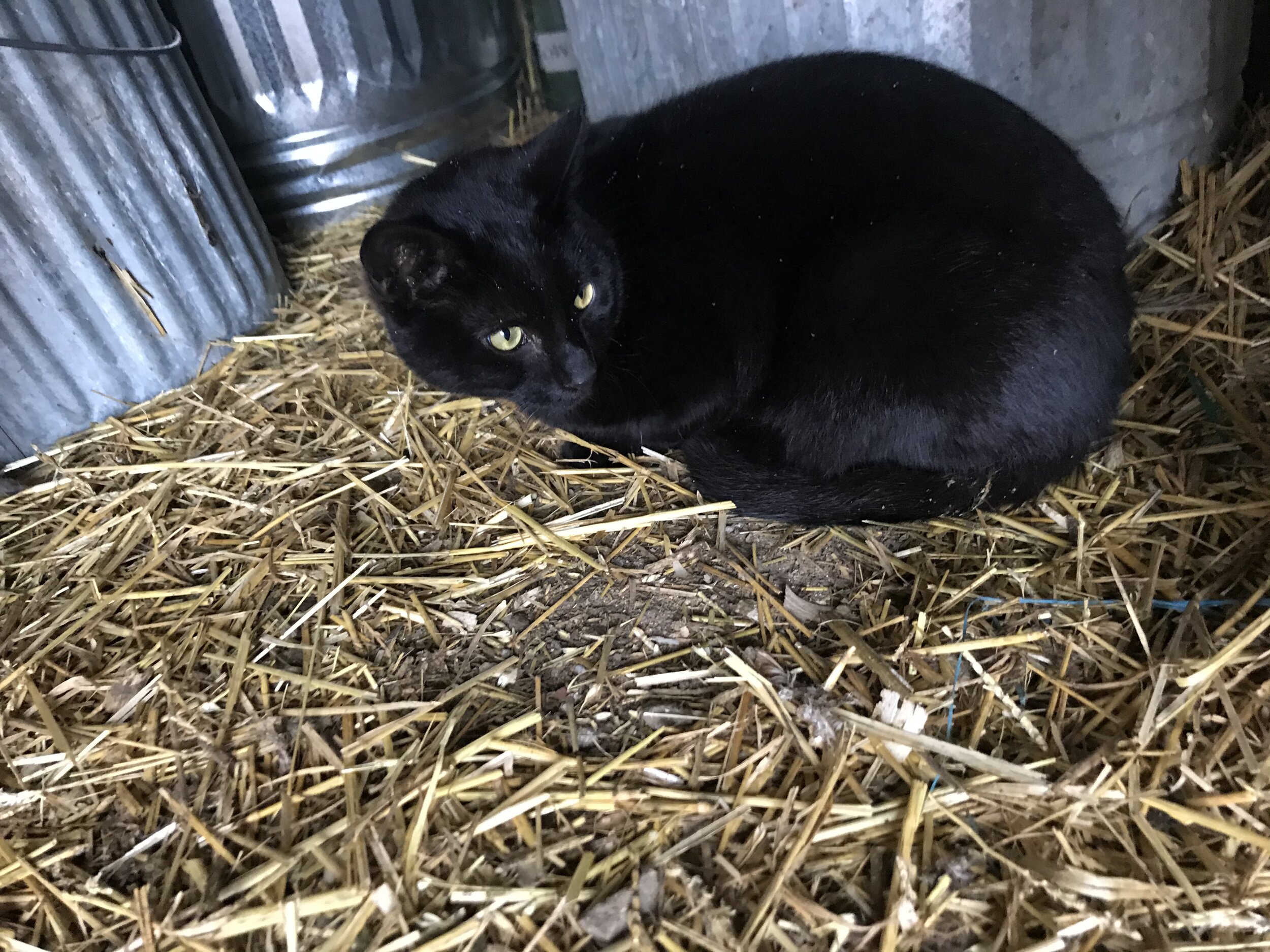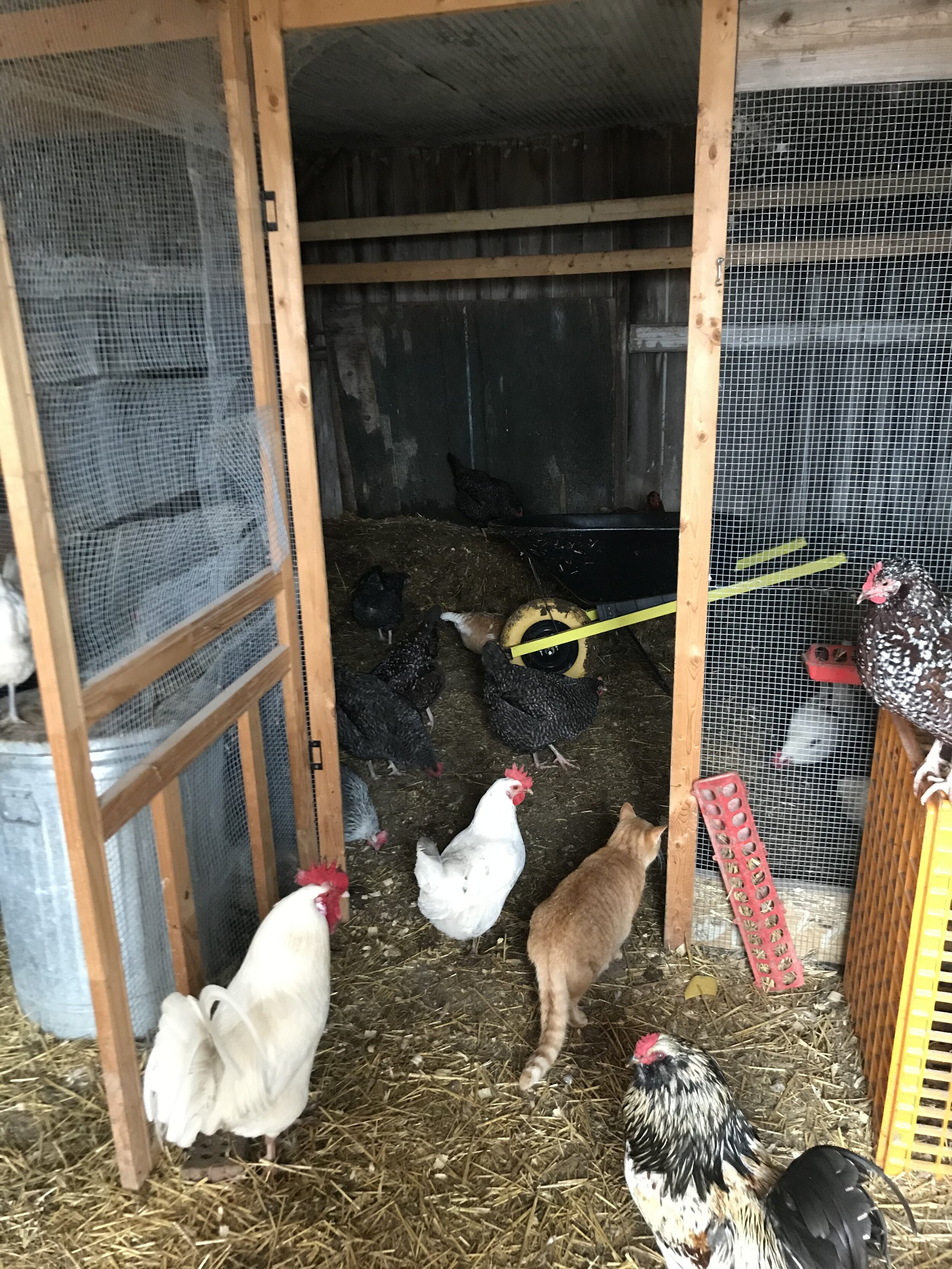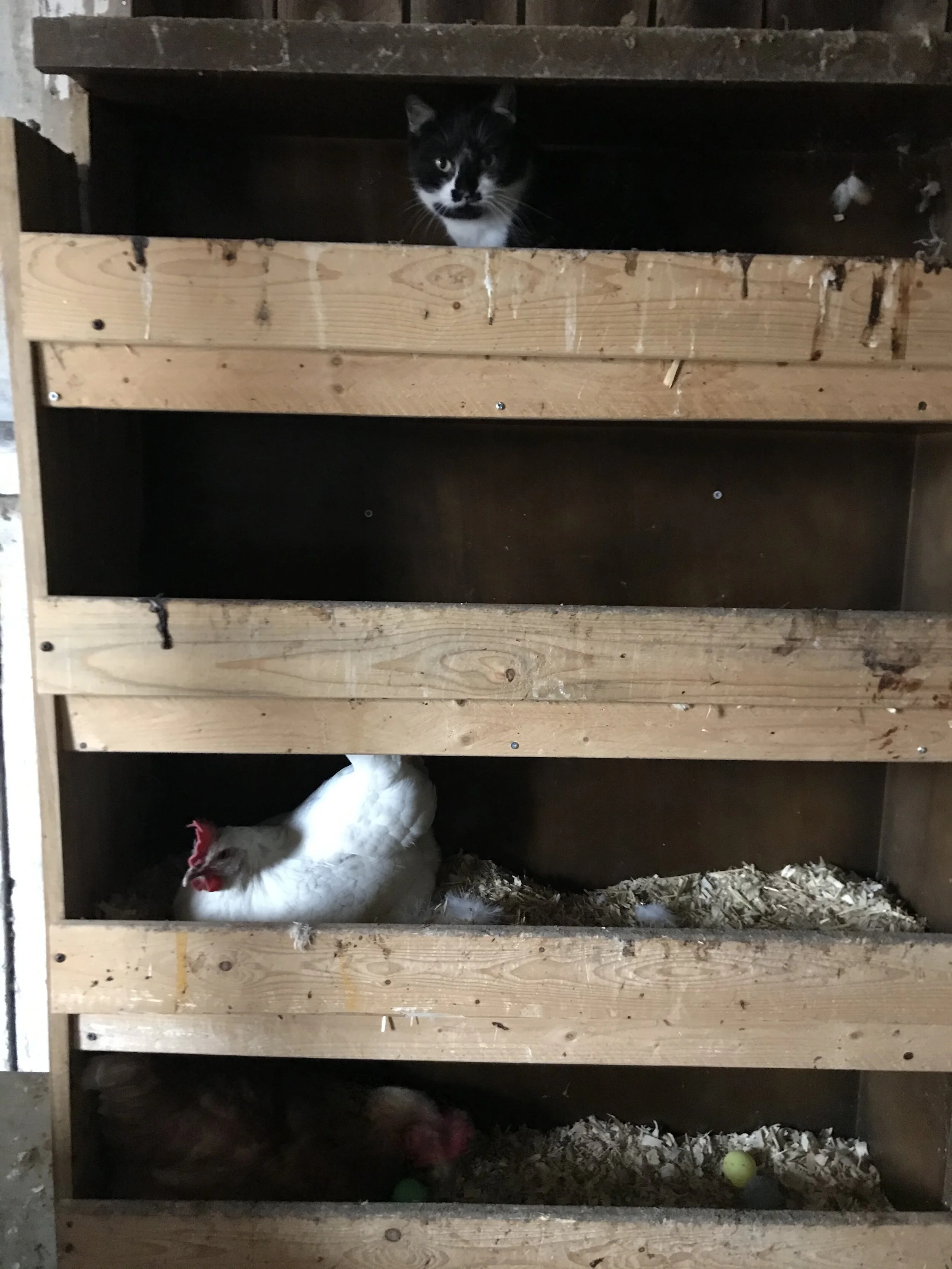30. That Shit is Gold
Okay, well maybe not gold, but it is certainly valuable. What “shit” pray-tell am I referring to? Why chicken and goose shit, of course!
I took advantage of my less-than-acute sense of smell this afternoon to muck out the chicken coop. And while horse manure is warm, soft, earthy, and comforting-smelling, chicken manure smells, well, like shit. This shit, in my case, was past its prime: ammonia stung my nostrils when I dug into it, and what little sense of smell I had was on high alert. It even made my eyes water at one point—poor birds! How must they have been feeling this past week with that stank build-up?
Before I brag about my manure removal, how much do you know about chicken manure? Did you know there are two kinds? First, regular poo (which exits out of the vent or cloaca—the single exit where everything comes out, including the egg, and contains both feces and urate), and cecal poo, a particularly noxious mess delivered every 8-10 times that chicken defecates, acting as a cleanse from its caecum. Think of it as a cleansing bowel movement that removes all the ick.
Above: Sophia is contemplating whether or not to brave the snow, regular chicken poo, and cecal chicken poo.
Oh yeah, and chickens poop a lot. Like, once every twenty to thirty minutes a lot. And Geese? Try a poo every twelve minutes. Multiply that by 88 and I am almost swimming in shit, hence the need to clean out the coop.
I practice the “deep litter method” by which I let the chickens compost their own feces by adding a little straw, some wood ash, diatomaceous earth, dirt, and wood shavings, and the chickens do the rest, scratching and pecking their way through the piles, eating bugs, stirring up the compost, and generally doing their chickeny best to turn the manure into compost. But of course, with so many poo-producers, this can get overwhelming, especially since my flock has the entirety of my property to practice those scratching skills. Needless to say, there are other places they prefer to spend time, so they hadn’t really been stirring the litter around, and things were a little out of hand. It was time to remove all the manure.
After a couple of hours, fifteen wheelbarrow loads, one surprised rat, and three rotten eggs, I removed 120 cubic feet of soiled bedding. The chickens were appreciative. What’s even better than their thanks and health is the brilliantly nutrient-rich compost I’ll have in a couple of months. See, chicken poo is really, really good for fertilizing. Of course, it’s so nitrogen-rich than direct application would burn anything you’d try to grow, so you have to compost first.
Look at that beautiful steam rising into the air! It means that the decomposition process is already in action: compost puts off heat, which is yet another reason why the deep litter method is a great idea for those who keep chickens and don’t use supplemental heating—the deep litter method warms the coop up a bit.
But wait, there’s more!
So why is chicken poo so great? According to the agricultural extension at Clemson University, “Poultry manure contains all 13 of the essential plant nutrients that are used by plants. These include nitrogen (N), phosphorous (P), potassium (K), calcium (Ca), magnesium (Mg), sulfur (S), manganese (Mn), copper (Cu), zinc (Zn), chlorine (Cl), boron (B), iron (Fe), and molybdenum (Mo).” And not only does this magic muck contain these nutrients, but it contains them in dense quantities, much more so than cow manure: “Chicken manure's N-P-K (Nitrogen - Phosphorus - Potassium) ratio ranges from 3-2.5-1.5 to 6-4-3; that of steer manure is usually a little less than 1-1-1” reports Sun Magazine.
So yeah, that shit is gold.
In addition to the chickens enjoying a little coop pampering today, the cats wanted to get in on all of the action: there were straw and manure flying, fat, sleek rats running for their lives, and lots of hens making a ruckus. I mean, what more could a couple of kitties want?
Carl wonders what is going on, Lenny is checking out the progress, and Midge takes full advantage of all the creepiest corners (and nest boxes).






